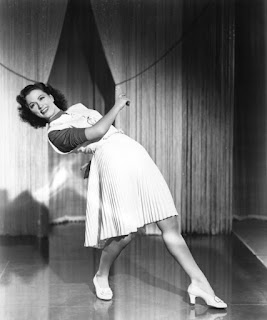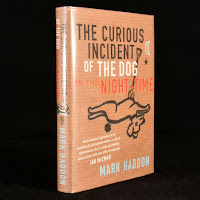 JULIA SPENCER-FLEMING: We all know many writers are self described as pantsers - composing without outlines to guide them. I prefer the term writing organically, because that's how it feels to me: one character or event leads to another and so on and so forth until
JULIA SPENCER-FLEMING: We all know many writers are self described as pantsers - composing without outlines to guide them. I prefer the term writing organically, because that's how it feels to me: one character or event leads to another and so on and so forth until four years later soon you have a novel.
But whether one writes "like driving at night in the fog," as E.L. Doctrow said, or meticulously plans and plots every twist and tune in advance, every writer wrestles with the same weird and magical process: taking an idea and turning it into a story.
 Maybe the idea is the world's best logline: Jurassic Park, except with sharks (MEG, by Steve Alton.)
Maybe the idea is the world's best logline: Jurassic Park, except with sharks (MEG, by Steve Alton.)
Maybe the idea is an amazing character: a confused teenager with Asperger's Syndrome (The Curious Incident of the Dog in the Night-Time by Mark Haddon.)
 Maybe the idea is a totally out-of-the-world premise: What if people and literary characters could move in and out of books in a Great Britain still fighting the Crimean War in the 21st century? (The Eyre Affair, Jasper Fforde.)
Maybe the idea is a totally out-of-the-world premise: What if people and literary characters could move in and out of books in a Great Britain still fighting the Crimean War in the 21st century? (The Eyre Affair, Jasper Fforde.)
 Great ideas are all around us. Heck, I've produced a dozen brilliant business ideas in the past decades that only fail because 1) I have no idea how to implement them and 2) I tend to forget them immediately after telling one of my kids about, say, a service that rents dogs to stressed people.
Great ideas are all around us. Heck, I've produced a dozen brilliant business ideas in the past decades that only fail because 1) I have no idea how to implement them and 2) I tend to forget them immediately after telling one of my kids about, say, a service that rents dogs to stressed people.
 The jump between having an idea and having a story involves speculation, pushing and prodding the facts, research, stretching the idea like Silly Putty with a picture pressed into it, weighing what's interesting and will open up new avenues for exploration, and what, instead, is a dead end. For some writers, this messy process takes longer than actually producing the words that make up the manuscript.
The jump between having an idea and having a story involves speculation, pushing and prodding the facts, research, stretching the idea like Silly Putty with a picture pressed into it, weighing what's interesting and will open up new avenues for exploration, and what, instead, is a dead end. For some writers, this messy process takes longer than actually producing the words that make up the manuscript.
 So now I have to confess that I'm not, at the moment, talking about what I'm doing with AT MIDNIGHT COMES THE CRY. What I'm talking about is Make Your Own Murder, an event I'm taking part in - right now, if you're reading this after 1pm EDT! - at the Osher Lifelong Learning Institute at the University of Southern Maine campus in Portland. It's the
So now I have to confess that I'm not, at the moment, talking about what I'm doing with AT MIDNIGHT COMES THE CRY. What I'm talking about is Make Your Own Murder, an event I'm taking part in - right now, if you're reading this after 1pm EDT! - at the Osher Lifelong Learning Institute at the University of Southern Maine campus in Portland. It's the baying crowd eager-to-learn attendees versus three mystery authors: me, Kate Flora, and Richard Cass. We'll be taking suggestions from the crowd for plot ideas, setting, and characters, and from that, we're supposed to spin out a story synopsis - within two hours.
.jpg) Since we set our plows in different fields - I write traditional, Kate is doing the Joe Burgess police procedurals, and Dick is well-known for his noirish private eye series about jazzman Elder Darrow - it's going to be very interesting to see how we work when harnessed together. I'll let you all know how it went in the comments later this afternoon (how much later depends on whether we go out for drinks afterwards...)
Since we set our plows in different fields - I write traditional, Kate is doing the Joe Burgess police procedurals, and Dick is well-known for his noirish private eye series about jazzman Elder Darrow - it's going to be very interesting to see how we work when harnessed together. I'll let you all know how it went in the comments later this afternoon (how much later depends on whether we go out for drinks afterwards...)
Do you have experience spinning a single idea (or two) into story gold, dear readers? And have you ever seen/ participated in an "authors making $#%! up on the fly" event?
JULIA: I'm finally home at 5pm, and I'm utterly wiped out! Dick and Kate and I had so much fun, and the almost-overflowing crowd did as well, with lots and lots of great suggestions coming from the audience, back-and-forth about how and why authors make certain decisions about character, setting, motivation and plot lines, and (very flattering to the three of us) lots of book sales through Maine fave Kelly's Books To Go.
We settled on, I think, several characters based on names and occupations the audience had written down. We drew names first, then settings, because we all agreed where the story was taking place was the next more important thing to who was in it. We decided on the Moosehead Lake region (featuring a foggy swamp) populated by an elegant antiques dealer, a judge, a new-age spiritual guru (and con man,) a wastewater plant supervisor, a clinical social worker, a Finnish-American pathologist and a Mi'kmac trout farmer/Maine guide.
Over the course of two hours (less, really, with all the asides) we showed the audience how the sausage was made. We killed off the sewage treatment guy first, and then changed the social worker from the detective to the second victim. We decided the antiques dealer was in it with the "shaman," providing fake Indian relics to sell, and later decided she was married to the judge, and having an affair with her partner in crime.
The pathologist went from being a possible killer to the protagonist, as she tried to discover the parent who abandoned her when she was an infant. Surprise, it was the judge! The big action sequence at the end was when she saved the judge from the real killer...
his wife, the antiques dealer, who was trying to off him for his money. The only thing we didn't get to was what I would definitely put in: a burgeoning romance between the pathologist and the aquaculturist/ Maine guide.
This doesn't begin to cover the various motives - everyone wanted someone dead! - or the discussion over frying pan versus antique rifle as the murder weapon. Honestly, it wasn't a bad start to a book - I'd tackle it if I wrote as fast as Jenn or Rhys!
It definitely got my creative juices flowing, and I can highly suggest going to any similar event if one turns up near you. (The OLLI director was so impressed, she wants to make it a regular offering every semester.) I wish you all could have been there with us!































